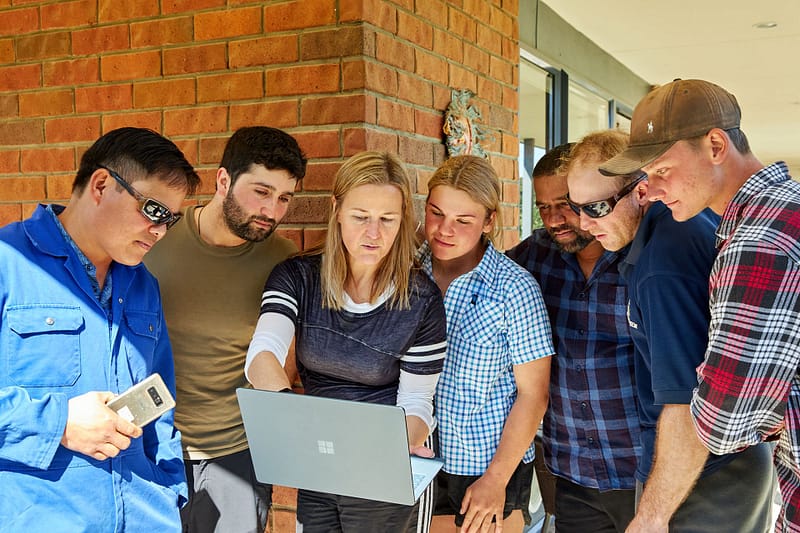Building a community of interest around a new educational website for the food and fibre sector is important to engage with educators and providers in farming, forestry, horticulture and fishing, say the project’s researchers.
The website, techenabledlearning.nz, is funded by the Tertiary Education Commission (TEC) and supported by the Food and Fibre Centre for Vocational Excellence (FFCoVE).
The threat posed by COVID-19 to the primary sectors led to the formation of the Technology-enabled learning – lessons from lockdown research project, which was the start of a process that has resulted in this website.
Research analytics specialist, Scarlatti, was commissioned to run the project, in conjunction with Dairy Training Ltd, Wintec and the Primary ITO.
The research identified three broad areas that had the most learnings – the platforms and delivery modes used by different organisations to deliver training; the key aspects of tech-enabled learning that learners and tutors struggled with most; and the things that worked well for tutors and learners.
The website, techenabledlearning.nz, offers trending “tips and tricks” including creating culturally inclusive online classrooms, setting up online classrooms for success, personalising teaching for Māori learners, and providing pastoral care in tech-enabled learning. Aimed at the food and fibre sector, it is a valuable tool to those of other disciplines as well.
Tutors have the ability to create their own toolkit of resources that they feel are suitable to them. An interactive dashboard is available to find out what the research says about technology-enabled learning in the Food and Fibre Sector. Education providers are also given information on how to implement effective learning solutions. There is also a calculator for return on investments, a connectivity map highlighting areas of poor reception, and practical tips for infrastructure.
Scarlatti Senior Research Manager, Dana Carver, says the resource is designed to be updated through continual research.
“We want it to be a space where people are sharing ideas and are able to see what others are doing. It is about researching what’s out there every six months and having a community of interest that funnels ideas into the website.”
Scarlatti Director Adam Barker says the move towards creating a technology enabled learning platform came after different education providers expressed an interest in making more use of technologies available.
“There were some barriers to this. A legitimate issue was the perception that we are dealing with practical training and practical people, and therefore having anything online just wasn’t fit for the purpose,” he says.
“There was also the belief that peer-to-peer training from both a learning and a social point of view is a very valuable part of how traditional class-based learning has worked.”
“Another issue we were dealing with was that no one was making money out of providing training in the Food and Fibre sector because of high fixed costs and low student volume.”
Scarlatti Director Adam Barker
Adam says that while COVID-19 brought many things to a halt, it also was an opportunity to take a fresh look at online training.
“We were forced to take this approach because all those barriers became secondary to keeping people moving. We realised that we needed to try things online because we were, in any case, doing more things online than we were three years ago.”
Dana says that while technological issues like rural broadband and the difficulty of accessing resources on smart phones could be resolved, the more complex problems were the social ones.
“The issue was about engagement within the actual training. How do you engage them? How do you make sure that the learning is effective and that it sticks?”
“The issue is also around pastoral care, and also learners connecting with other learners. Ordinarily, you’d be in a physical space, but when you’re not, how do you create that social space for people?”
“When you also have the added issues of a people who have English as a second language, then that’s exacerbated online. It exacerbates some of the challenges that are already there.”
Dana says the website has gone a long way to addressing these issues, but more funding is required to keep the information updated.
Links to the resource are on the websites of the TEC, the FFCoVE, Ako Aotearoa and Te Kete Ipurangi.
